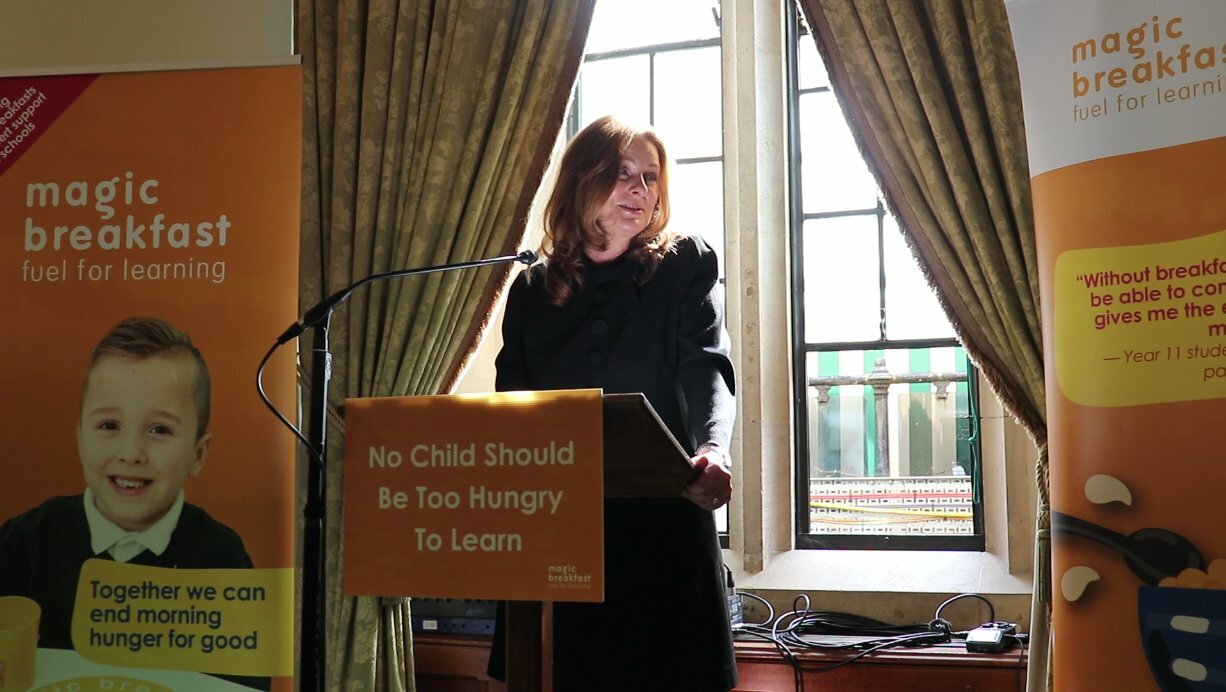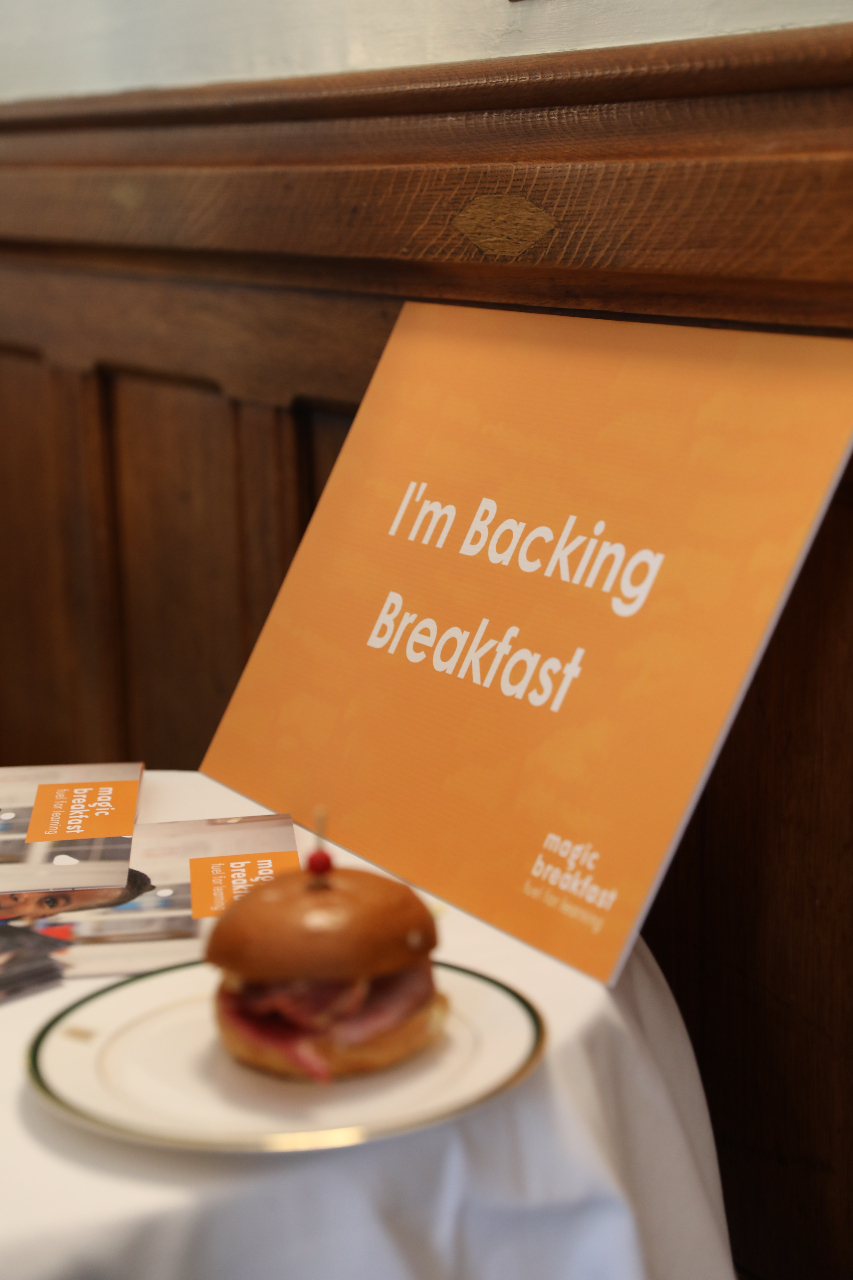Research Intern at Magic Breakfast: Reflections, Thoughts and My Experience

I walked into Magic Breakfast with a very vague idea about what to expect over the next 6 weeks. But what I definitely did not expect was the amount of ownership I would have over a project that permeates the organisation internally and externally, nor the impact I would have on children’s lives and just how much I would take away from this experience.
My Leadership-in-action project was at the non-profit Magic Breakfast, a charity which works on ending morning hunger in schools across the UK. I was working on analysing the M&M survey, a survey sent out to all partner schools collecting data on topics ranging from child poverty and hunger, and the cost of living crisis to the visible educational, behavioural and familial impact of breakfast provision. The tasks consisted of cleaning, analysing and visualising both the quantitative and qualitative data of 600 schools. The primary objective was to compile two comprehensive reports detailing the insights gathered from this year's M&M, intended for internal circulation and utilization in external-facing materials. Additionally, I delivered a presentation of my findings during a Town Hall meeting and authored a blog post for the website summarizing 'Our Year in Numbers’(https://www.magicbreakfast.com/blog/magic-breakfast-mm-survey-2023-from-data-to-insights). Throughout this experience, I set several key goals for myself: to enhance my technical skills, improve my presentation abilities, and learn how to navigate uncertainty within a non-academic environment.
I believe I successfully achieved my goal of improving my technical skills, by learning how to use Salesforce and Excel to clean and analyse both quantitative and qualitative data. However, I was determined to push myself and take my skills to the next level, particularly in the area of data visualization. In the past, the M&M data visualisation was done in Excel. I approached my manager and the IT head to request permission to use PowerBI, a powerful business analytics tool. Fortunately, this was something they were planning to roll out to the organisation in the next few months, and I was given a license. While it took me a considerable amount of time and effort, including watching numerous tutorials and undergoing multiple trial-and-error sessions, I firmly believe that this endeavour significantly improved the clarity and impact of the insights presented in my final reports and presentations.
The experience was not without its share of challenges. When cleaning the data, I found many of the case studies emotionally heavy and hard-hitting to read. These stories often depicted children whose parents grappled with issues such as drug abuse and domestic violence, making it difficult for them to ensure their children attended school in the mornings. In another instance, during a preliminary presentation of Scotland's school data to a focus group, I encountered a surprising situation. Unlike my experiences in university, I couldn't easily gauge my performance. I found myself immediately bombarded with inquiries about specific slides and asked outcome-focused questions, all accompanied by constructive criticism. This was a new experience for me, emphasizing the importance of delivering useful information that adds value, rather than just being a good presenter.
I took on these lessons and applied them to my final presentation to Town Hall, where I presented the key insights from this year's M&M and also reflected on my internship experience. Just when I thought everything was going smoothly, my greatest fear materialized - my computer malfunctioned, and I couldn't log back into the Team meeting. I swiftly made my way to my manager's desk in the main office, requesting to present from her laptop. Surprisingly, this little mishap shook off any nervousness I had, and I confidently carried on with my presentation until the end. In retrospect, this presentation is the achievement I'm most proud of. The Microsoft Teams chat was filled with positive comments and compliments on my presentation, including praise from Magic Breakfast's CEO. This recognition was incredibly rewarding, making me feel genuinely appreciated for my hard work.
What was the sustained impact of my LIA, and how did I contribute? The insights, statistics and analysis of the M&M that I produced will be used next year to convincingly demonstrate the quantifiable impact of Magic Breakfast's breakfast provision on educational, behavioural, and well-being outcomes to political parties and potential funders. This, in turn, will lead to increased funding, allowing us to reach more children, especially those who are particularly vulnerable to food insecurity and hunger. In the long term, this would improve regional educational disparities, and eventually improve the quality of life and social mobility of underprivileged children in the UK. I also examined survey questions of a more logistical nature. This analysis assists the service delivery team in efficiently delivering nutritious and tasty breakfasts to children each morning, increasing uptake and food choices. As part of my sustained impact efforts, I also compiled a list of potential improvements for future M&M survey questions, aiming to ensure that responses from schools are more targeted and informative to help the next person analysing the M&M, and hopefully encourage them to leverage software and use tools like PowerBI.

I was specifically interested in meeting Economists working in the social impact space and third sector, as I am keen to see how I can have a positive impact in my career with my skillset. I asked around at Magic Breakfast, and I had the pleasure of meeting the Chief Economist of Pro Bono Economics, and the Chief Economist of the Social Market Foundation. I also had many enriching conversations with Magic Breakfast employees. For example, I was fascinated with how the policy team would push our agenda to parties by aligning our mission with their manifestos, e.g. by showing how breakfast provision improves class behaviour, which would help reduce the number of teachers quitting their profession due to classroom stress. The highlight of my time was unquestionably my visit to one of our partner schools. It was truly inspiring to witness the tangible results of our efforts, especially because working in an office sometimes made me feel far removed from the broader mission. Seeing the breakfast club and happy children munching on bagels deepened my connection to the organisation's purpose, which was definitely an eye-opening experience.
My idea of leadership evolved over my LIA project to also appreciate how important being data-driven in decision-making can be. Having research-backed, quantifiable evidence is crucial to justify the decisions you make as a leader. In addition to this, I saw the value of handling uncertainty, being proactive and presenting well. I am forever grateful that I could have a tangible impact on the lives of children across the UK, and learn so much about not only food insecurity; but also myself. I want to thank Magic Breakfast, The Laidlaw Foundation, the LSE Laidlaw team and the LSE Careers team for making the experience possible.
Please sign in
If you are a registered user on Laidlaw Scholars Network, please sign in